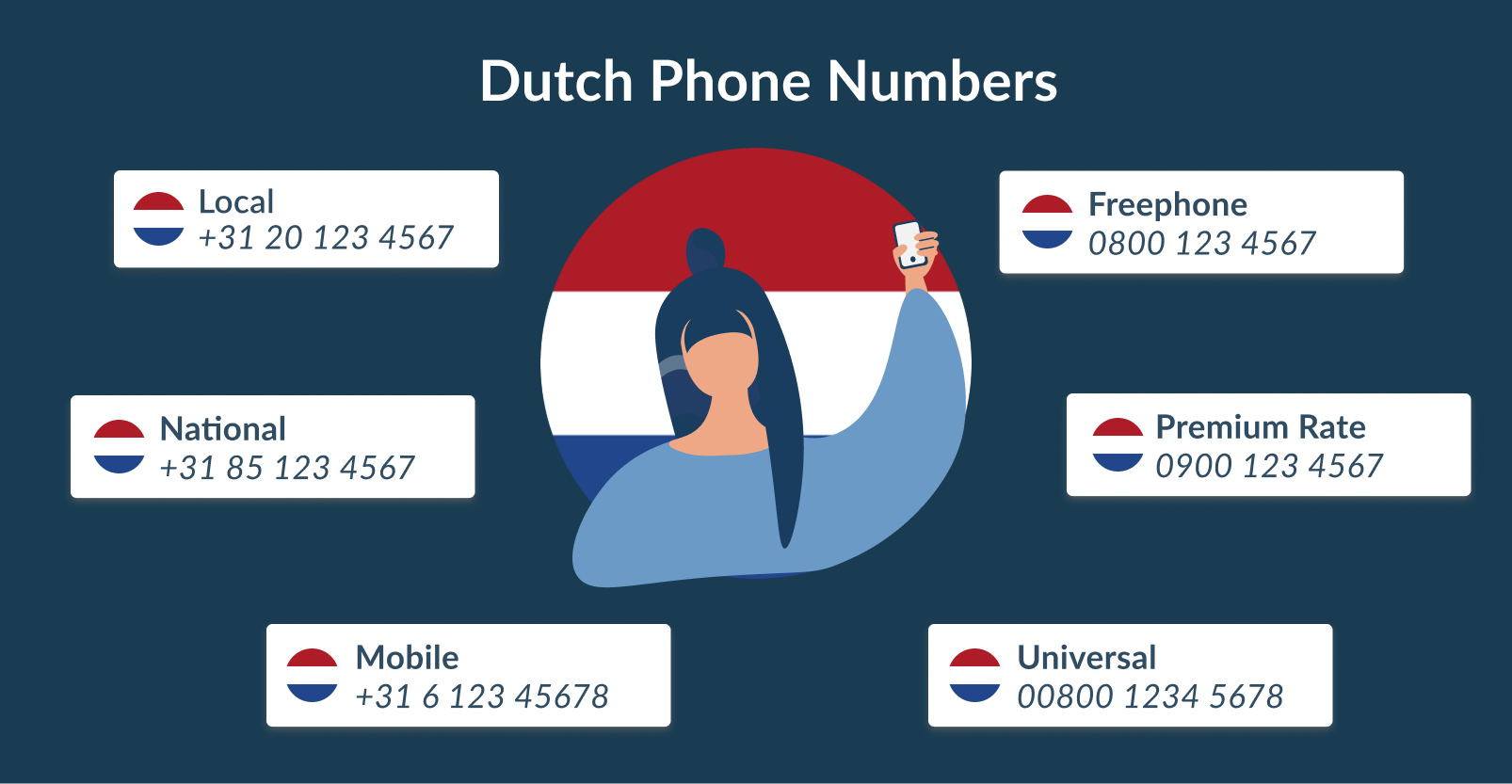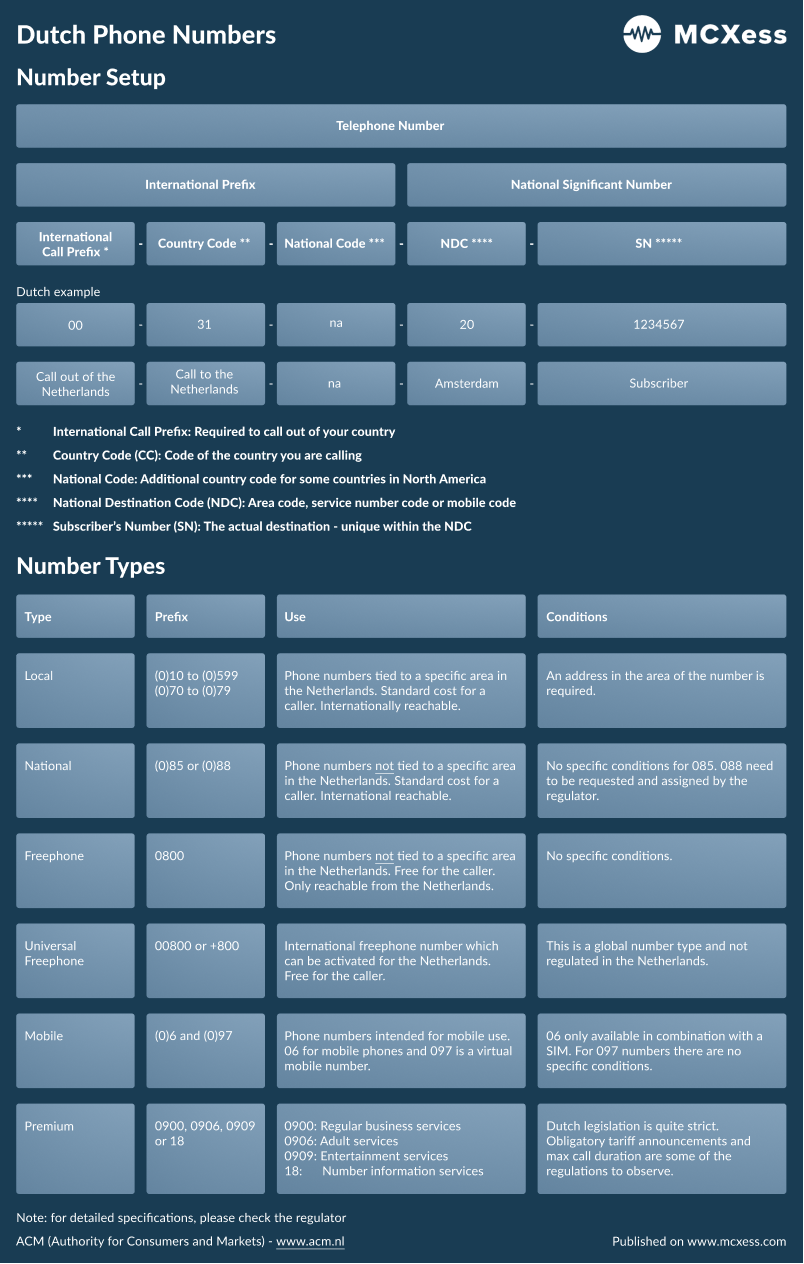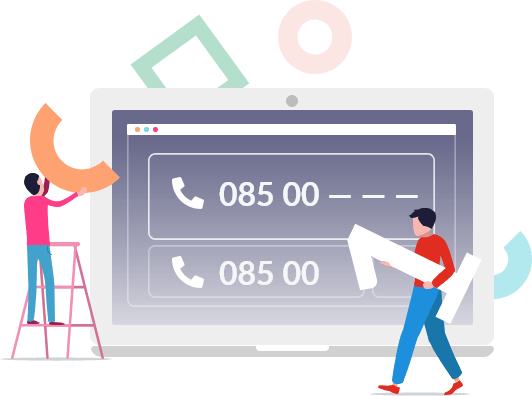
In this edition of Countries in the spotlight: The Netherlands with Dutch Phone Numbers.
In a world that is changing rapidly, economically, politically and socially, as well as due to the global Covid-19 pandemic, the Netherlands has proven to be a stable country.
The Netherlands is one of the most open economies in the world and among the best countries in terms of technology and innovation. It offers an excellent infrastructure – including the largest port in Europe – a competitive business climate and a well-educated workforce.
The World Bank ranks the Dutch economy as 17th largest in the world and fifth in the European Union with a Gross Domestic Product (GDP) expected to reach 1,012 billion US dollars by the end of 2021.
All very good reasons to address the Dutch market. But what is the best approach? Let’s dive into the options and best practices specifically for The Netherlands.
The Dutch have very high English proficiency and a history of international trade. Dutch consumers regularly buy from non-Dutch websites. But to truly engage them, you’re better off speaking to them in their own language and on their terms. Making sure your marketing localization strategy allows for an authentic and engaging local experience will set you up for success.
This makes having Dutch phone numbers critical when targeting the Dutch market. Herewith an overview of what Dutch Number Types are available for you to use:
Dutch Local Number
Dutch local numbers are – as in any other country – tied to a specific area and are reachable against standard caller cost within country boundaries. The Netherlands has arranged their area codes mostly but not consistently per province. A map as shared by the Dutch regulator can be downloaded here.
It is noteworthy that an address in the area of the phone number is required to request a Dutch Local Phone Number.
Dutch National Number
A Dutch National number is not tied to a specific area in the Netherlands, has either prefix 085 or 088 and is reachable against standard calling cost.
Both prefixes are intended for the same purpose and the main difference is in the activation process. A 085 number can be requested and delivered instantly. 088 Numbers need to be requested and assigned by the regulator (ACM) in blocks of 100 numbers first before they can be activated.
Dutch Freephone Number
Dutch Freephone numbers (or toll-free numbers) have the 0800 prefix – as recommended by the ITU – and calling is free for the caller. Freephone numbers are generally only reachable from within the country – although international calls in some cases do come through.
Freephone is a Dutch number type that is relatively easy to request. You do not have to take any special conditions into consideration.

Infographic – Dutch Phone Numbers. You are free to use this infographic in your own publications provided a link to this article is placed as well.
Universal Freephone Number
An International Freephone number – officially a Universal International Freephone Number (UIFN) – is a global number. It is not regulated in the Netherlands itself. The ITU has defined this type of number as an international alternative for the regular in-country freephone. This type of number can be activated in the Netherlands and the exact same number can be activated in other countries as well.
Dutch Mobile Number
The Netherlands has reserved a couple of prefixes for mobile usage: 06 and 097. Dutch mobile numbers are reachable against mobile cost and internationally reachable.
Important to know about Dutch mobiel numbers is that 06 are intended for mobiel phones and only available with a SIM. 097 numbers are classified as virtual mobile numbers and are quite easy to obtain.

Dutch Premium Rate
The Netherlands has a clear numbering plan for Premium rate numbers. The most relevant premium range starts with 09 and has the following uses:
- 0900: Number range for regular professional services
- 0906: Number range for adult services
- 0909: Number range for entertainment services
These ranges can be requested with the following caller tariffs (additional to the regular caller calling cost):
- Per minute: € 0,00 to € 1,10
- Per call: € 0,10 to € 1,60
Furthermore, it is not allowed to utilise a premium rate number with a tariff other then € 0,- per minute for customer support for existing customers.
The other important prefix is:
- 18: Number range for number information- and forwarding services
The regulations regarding 18xy numbers are extensive but manageable. These are some of the regulations:
- Callers need to be supported by real persons
- An explicit approval is required before callers can be transferred
- The transfer destination phone number must be mentioned to the caller
For more information, see this blog dedicated to 18xy numbers.
You should always be careful when choosing a phone number type. This guide provides excellent guidelines for your selection process. But here are some considerations to make with the specific Dutch market in mind.
The Dutch culture is one of action. Dutch people are result driven, direct and do not waste time. The American Government has drafted a good description of how to approach the Dutch market, taking their culture into mind:
- Dutch buyers appreciate quality and service, but price is the most important element for market entry.
- Assure that delivery dates are met and that after-sales service is available.
- Launching products requires vigorous and sustained promotion, as it takes time for consumers to change their buying habits. Products must be adapted to both technical requirements and consumer preferences.
- It is not sufficient to label merely a product in conformity with national requirements in order to realize full market potential.
- The Dutch market is highly competitive; the “golden key” to doing business is courtesy, especially in regard to replying promptly to requests for price quotations and orders.
- Friendship and mutual trust are highly valued, and once trust has been earned a productive working relationship will follow.
- Exporters should consider warehousing in the Netherlands for speedy supply and service to their Dutch and European customers.
- Most Dutch people speak their minds and will not waste your time if they are not interested in your product.
Take this into account when selecting phone numbers for the Dutch market and define call handling.
What is valid for support, is even more valid for sales phone lines. You want to welcome callers with open arms. Confirm to the potential customers they can expect an excellent customer experience. Any possible threshold must be removed. So, in most cases (and countries) a freephone is by far the best practice.
This is valid everywhere but even more so for the Netherlands. The Dutch look for value for money and are purpose driven. They understand a freephone number is meant for low threshold and high service – so they expect a freephone number for these cases. This really makes a difference in the Netherlands.
There is one downside to take into account: A freephone number is a national number and that does not suit all types of businesses. Local audiences might want to feel confident that you and your business are rooted in the same community. Toll-free numbers achieve the opposite effect since they start with non-local area codes. That fact alone can cause a mental division between you and the customers in your backyard.
In conclusion, a freephone is the best Dutch phone number type to use for sales (and support) lines but do verify whether it is more important to show with your number that you are physically close by.
Local businesses with local clientelle should take local phone numbers. Dutch people do not mind to shop internationally but when the product or service is available local, they will prefer the local offer. A Local Dutch phone number provides the feeling of recognition. So, the importance for local businesses to have a Dutch Local number is evident.
In the Netherlands local business should choose local numbers – no question. The only thing to consider is – when you service multiple communities or provinces – whether multiple numbers are required to connect with your audience in the respective communities. All phone numbers can be forwarded to the same destination(s). So, you can keep working as you are used to, but your potential callers have confirmation you are able to service them in their respective areas. Not all Dutch people feel confident to jump community – e.g. a person from Rotterdam will prefer Rotterdam contacts and phone numbers over the once from Amsterdam and vice versa.
The best advice for a multinational is to do localization for their phone number the same way as they do for their website. Most corporates put effort in fine tuning their online presence and keep on tweaking their localisation. But somehow optimisation of the phone numbers stays behind while the same results can be achieved. So, per country look at the specifics and determine the number types to be used based on the localisation as defined for your website. Do not underestimate the importance of localisation of phone numbers. We have dedicated an article on Smashing Magazine to address this topic.
An additional option for multinationals is an International freephone number (a.k.a. UIFN). This type of number can be activated in multiple countries and therefore there is only one number to remember by the caller and a single phone number can be printed on documentation used in multiple countries. This can be quite the optimisation. Do check up front if calling such a number is acceptable for your specific audience.
The obvious choice for a nationally operating company is a national phone number. However, it is not the best choice for all situations. And in some case, it might even be worthwhile to opt for multiple types of numbers.
The Netherlands is geographically not a big country. So physical distance is not a primary drive for the choice of a national number versus a local number. Image however, is. And in the Netherlands an important one. As discussed earlier, Dutch are purpose driven. If you want to project a corporate image, the image of a national operating organisation, you should opt for a Dutch national number. If that is not the image you are trying to project, make another choice.
And there are always the sales and support lines to consider, which – in essence – are national numbers as well. A freephone number remains the most effective option. Based on these guidelines, it should be easy to make the best choice for you.
When providing consulting or other professional services via the phone, you expect to be rewarded. The Dutch respect that. Obviously tricked regulations are in place to protect the Dutch consumer, but these are quite straightforward. As long as you stick to these regulations, Dutch premium rate numbers provide a good basis for your phone services.
Detailed regulation can be found on the website of the Dutch regulator ACM. And obviously, we are happy to help as well.
No Address in The Netherlands
Dutch number type National with prefix 085 and freephone numbers 0800 do not require special request procedures or prerequisites. These number types do not require consumers to be protected and are great means to enter the Dutch market.
Unlock the full potential of this open and dynamic country via Dutch Phone Numbers that fit your business.

A very extensive guide to optimise your call routing can be found here. This guide is applicable for all countries including the Netherlands. What should get additional attention when defining a call routing flow for an audience from the Netherlands: Be to the point and provide value for money. Be direct but friendly.
Next point of attention is the language: Dutch is preferred for the consumer market. Approximately 95% of the population speaks English. And in the big cities English is even accepted in retail and Restaurants, but in general Dutch will be more effective.
Formal or informal language: unless you’re dealing with somebody who is very particular about etiquette or your type of business requires it, you can default to the informal language jij.
This is in contrast to countries like Germany, France or Portugal, where people really will not like informal language and may react a little hostile, even. For the Dutch it is much more important to be to the point then formal.
Would you like to discuss your specifics, please do not hesitate to contact us. We are happy to help.

